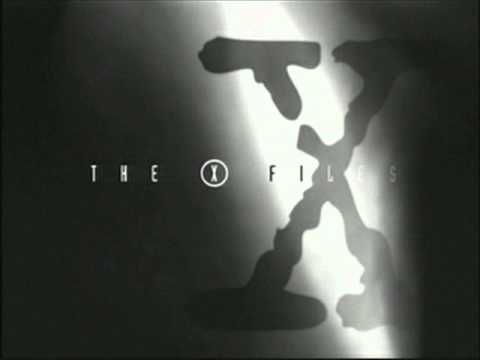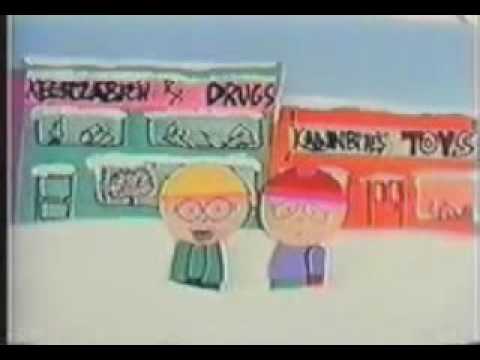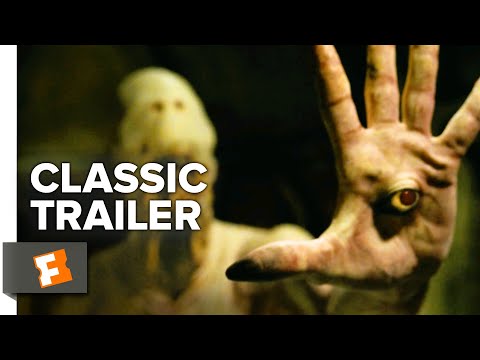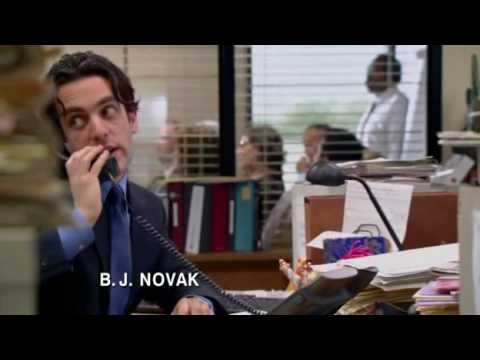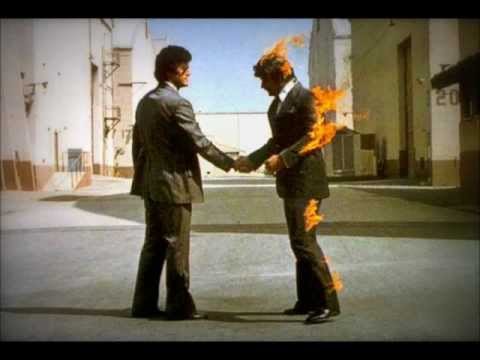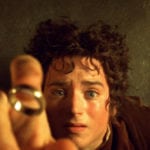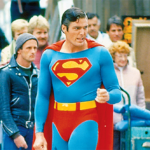10The X-Files Theme Tune
Before it became a parody of itself, the shimmering keyboard delay of the X-Files theme tune was an ominous, dreary piece of intro music that foreshadowed the extraterrestrial events of the show perfectly. Nowadays, YouTube celebrities and cheap spoof movies like to use the composition to cover up their lack of jokes. But despite the overuse and the aura of kitsch, the song is still a phenomenon. And according to the show’s composer, Mark Snow, that’s all it ever was. The X-Files show creator, Chris Carter, visited Mark Snow at his studio where he had been working on possible compositions to be used during the show’s opening. After hearing what Snow had to offer, Carter felt it just wasn’t right. There was something there, but there was also something missing. So Snow tried again. It still wasn’t perfect. Eventually, Carter left the studio with nothing of merit for use in the show. In his exasperated state, Mark Snow haplessly dropped his arm onto the still-active keyboard, which, by chance, resulted in the opening notes as we know them today.
9‘Come To Daddy’
Richard D. James, creator and sole member of Aphex Twin, is something of a musical entity. Known for his sometimes intense, often ethereal electronic music just as much as he is known for his image, James has been making music (and collecting war tanks) since the early ’90s. Back in 1997, when MTV cared, among the likes of “MMMBop,” “Barbie Girl,” and “Virtual Insanity,” you might have seen a music video that went something like this: intimidating high-rise buildings, urinating dog, an elderly lady, a misshapen face, demon children, a TV monster, a piercing scream, and distortion. That ordeal was “Come To Daddy“—the first of many disturbing visual collaborations between Aphex Twin and director Chris Cunningham. James once claimed in an interview that the idea for the song came about while he was “getting pissed and doing this crappy death metal jingle.” The song, which was intended as a joke—a sort of wry jab at certain Big Beat bands of the time—somehow got picked up and marketed. On top of that, Cunningham received a hefty budget to direct the music video, which, nowadays, is often cited as one of the scariest videos of all time.
8South Park
In 1992, before Matt Stone and Trey Parker were Tony Award–winning, Oscar-nominated millionaires, they were just two down-on-their-luck college friends who decided to work together on a crudely animated short film named Jesus vs. Frosty. Though the video lasted only five minutes, the image of Jesus Christ decapitating a killer snowman with a halo must have struck a chord, as the animated short amassed a cult following. During the next couple of years, the video hit the heights of early ’90s viral levels, being bootlegged and copied—VHS to VHS—before finally reaching the hands of Brian Graden, a television executive for the Fox network. Brian Graden loved the animation so much that he paid Stone and Parker $1,200 to create another animation that he could use as a video Christmas card. So, in 1995, Jesus vs. Santa was created. Soon after, the video was uploaded to the Internet, where it became one of the first-ever viral videos. This led to Comedy Central picking up the show for a six-episode run on late-night TV. Despite testing poorly with audiences—particularly women—the viral buzz behind the videos garnered a lot of attention, giving South Park the breathing room needed to grow . . . for 19 more seasons.
7Fanta
During World War II, while the Third Reich were busy following the orders of a tiny lunatic, something far more important was happening in Nazi Germany that is often forgotten: The Coca-Cola Company was floundering. Finding it difficult to import the necessary ingredients needed to produce their ever-popular poison, Max Keith, the company director, decided to create a new product to circumvent the trade embargo put forth by Franklin Roosevelt. He did this by using leftovers. Originally made from the dregs of cheese (whey), apple fiber from pressed cider, and surplus pomace, Fanta was created as a last-ditch effort to market the Coca-Cola Company in Nazi Germany. Through sheer luck—and money-hungry hard work—Max Keith succeeded, leaving him with the means to keep his company profitable throughout the course of World War II. Today, Fanta is available in 90 different flavors and remains one of the company’s highest-selling products worldwide. So we suppose we’ll just have to forget about the forced slave labor involved in its original manufacture.
6Pan’s Labyrinth
Before visionary director Guillermo Del Toro went on to make Hellboy II and Pacific Rim, he was dueling with the ideas bouncing around his mind, trying to decide between working on another blockbuster or a piece of art—something darker and more experimental. All of Del Toro’s plans for his new movie were inside a leather-bound notebook that contained over four years’ worth of illustrations and character development. So, when Del Toro made the mistake of leaving his prized sketchbook in the back of a London taxi, he set off, dejected, to try and find it. But the journey was short. After fruitlessly reporting the mishap to the police and coming up empty-handed at the taxi company, Del Toro was at a loss. Realizing his years of work were probably gone forever, and knowing that Pan’s Labyrinth might never get made, he all but gave up hope. Two days later, however, Del Toro’s guardian angel taxi driver appeared outside his hotel room. He’d recognized the hotel’s logo on a torn piece of paper left clinging between the pages of the sketchbook. Del Toro tipped the driver $900 for his trouble. Although formerly unsure as to whether he was ready to make Pan’s Labyrinth, he took this incident as a sign. And in 2007, the film took home three Academy Awards.
5The Office
In 2005, the American version of The Office aired in 11 million homes, altering the perception that remakes are inherently a mediocre—and oftentimes pointless—cash-in on their original counterparts. Whether you love it or hate it, The Office changed the face of comedy (twice, in two different countries) and brought new meaning to the word “cringe.” When casting began in 2004, Paul Giamatti was at top of the list to play the regional manager of Dunder Mifflin, Michael Scott. So when Giamatti declined the offer, executive producer Ben Silverman opted for relative newcomer Steve Carell, who was fresh off the back of The Daily Show. Series creator Greg Daniels liked this idea but hired a casting director in the meantime to screen some new talent. This led to the likes of Seth Rogen, Adam Scott, and Bob Odenkirk auditioning for the role. Deterred by the hiring of a casting director, Carell accepted a part in a short-lived NBC show named Come To Papa. This forced Daniels and Silverman to pitch the idea of the pilot with Odenkirk in the role, which didn’t go as well as they’d hoped. After the meeting, Daniels was told by an NBC insider that Carell would soon become available again given the current ratings for Come To Papa. And they were right. Within the month, Carell received the role of Michael Scott.
4Wish You Were Here
After the completion of their 1973 masterpiece The Dark Side of the Moon, Pink Floyd fast became one of the biggest acts in the world. So, two years later, when Floyd hit the studio again, tensions were high. The pressures of fame had hit the band full force, leaving them feeling drained, emotionally and physically. Meanwhile, their record company was persistent in breathing down their necks, hoping to capitalize on their mammoth success as a band. From those recording sessions, Wish You Were Here eventually surfaced. And if The Dark Side of the Moon hadn’t already cemented the band’s place in musical history, then their 1975 follow-up would certainly do the trick. And all it took to kick-start the difficult sessions was four accidental notes. Sitting in the control room at Abbey Road Studios, David Gilmour was play-testing a recently purchased 12-string guitar, when the opening notes to “Wish You Were Here” first came to him. In his own words, the notes “just sort of started coming out.” After playing around with the guitar a little more and mildly obsessing over what was slowly developing, Roger Waters found himself intrigued. Gilmour’s habit of sporadically playing songs by other artists often led to Waters’s disappointment, but this was not one of those cases.
3Matthew McConaughey
Over the years, Matthew McConaughey’s career has been a mystery. Some people may remember him as the leading man in too many romantic comedies to count. Some people may remember him as “that Texan with the abs.” Some people may remember him as the Academy Award–winning actor who owned 2013 and 2014. But most people probably remember him as Wooderson, the creepy pervert from Richard Linklater’s classic Dazed and Confused. In 1991, while putting all of his focus on working behind the camera rather than in front of it, Matthew McConaughey would often find himself at his friend’s place of work, solely for the free drinks. One night, at around 3:00 AM, McConaughey got talking to movie producer Don Phillips, who was in town filming and who happened to be sitting at the opposite end of the bar. After asking about McConaughey’s previous acting work, which at the time was pretty much nothing, he invited him to the film set to audition for a part that he felt he may just be perfect for. Six hours later, McConaughey arrived for his audition, nailed it, and was hired on the spot.
2Sid Vicious And The Sex Pistols
Before The Bollocks, Sid Vicious was just another young punk looking to join a band. Rat Scabies, founding drummer of The Damned, heard about this and organized an audition for both Sid Vicious and David Vanian to decide who would helm lead vocals for the new punk outfit. Scabies left this message with a mutual friend of the two, detailing when and where to be. But the message never reached Sid, so the job went to Vanian. When Glen Matlock left the Sex Pistols in 1977, Sid, who had never missed a Pistols gig, was drafted in on bass duties, despite having little skill in that area. He was soon made a permanent member of the band and with some practice took to playing the bass guitar, while also serving as punk mascot for the disillusioned youth he channeled through his erratic performances. But the band didn’t last long. Following the breakup of the Sex Pistols, Sid met Nancy Spungen, a schizophrenic runaway who had worked as a stripper and prostitute before groupie-ing her way to London. During their 19-month relationship, Vicious and Spungen moved to New York and rented a room in the Chelsea Hotel, where they fell into a downward spiral of drugs. Their relationship ended in tragedy when Vicious awoke from a binge and found Spungen dead with multiple stab wounds to the chest, likely by his hand. Three months later, Vicious died of a heroin overdose, sealing his place in history as the face of punk infamy.
1David Bowie’s Eyes
David Bowie is one of the most iconic artists of all time. His music is timeless, his elusiveness is fascinating. His persona keeps changing—Ziggy Stardust, the Thin White Duke, Aladdin Sane, the Man Who Fell To Earth. But one thing always remained the same about Bowie, and that was the mismatched eyes. Often mistaken for heterochromia, the real story behind Bowie’s eyes is a lot more intriguing. At the age of 14, David Bowie and his friend, George Underwood, both fell for the same girl. After Underwood gathered the courage to ask her out on a date, she said yes. And so Bowie did what any good friend would do: He convinced Underwood that she was wasn’t going to turn up. After finding out that the girl in question really had turned up and waited for Underwood for over an hour, Underwood saw red and punched Bowie, accidentally catching his left eye. Bowie was then driven to the nearest hospital where he was told that the muscles in the eye had been badly damaged and were unable to dilate or contract. Though the doctors feared for the worst, they were able to save the eye. But this still left Bowie facing problems with depth perception and blurred vision for the rest of his life. Despite mistakes on both sides, the two remain friends to this day. And in the early ’70s, Bowie even commissioned Underwood to design two of his album sleeves. My name is Jacob Newell, and I’m nothing much at the moment. I work a boring retail job and write a lot in my spare time. At work, I’m stationed atop of my high horse so that I can tell customers that they look silly in their new clothes, while simultaneously crying because I feel mediocre. I also like lists.
